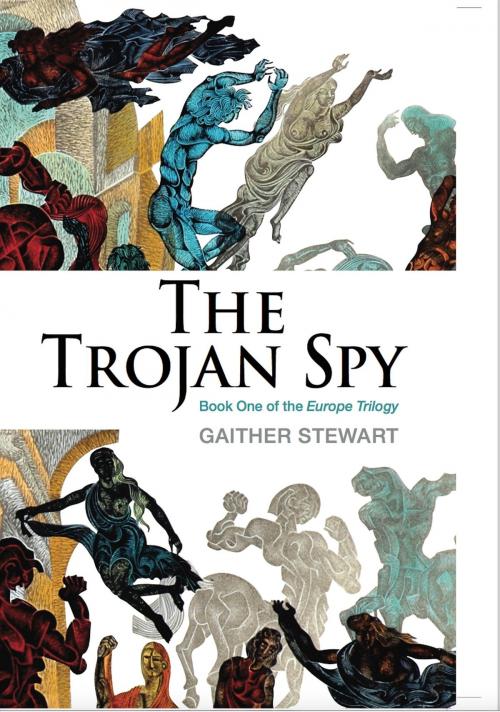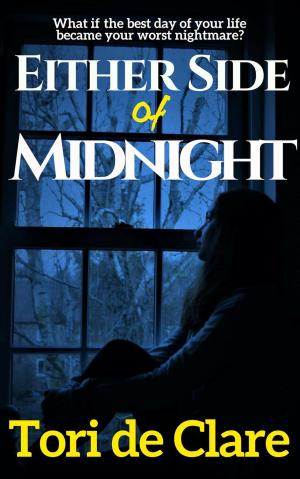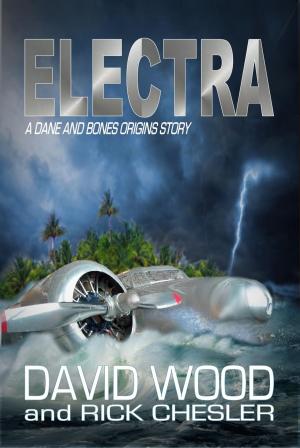| Author: | Gaither Stewart | ISBN: | 9780463330197 |
| Publisher: | Punto Press | Publication: | June 21, 2018 |
| Imprint: | Smashwords Edition | Language: | English |
| Author: | Gaither Stewart |
| ISBN: | 9780463330197 |
| Publisher: | Punto Press |
| Publication: | June 21, 2018 |
| Imprint: | Smashwords Edition |
| Language: | English |
The Trojan Spy is an espionage thriller with more than just one twist and its plot mimics reality—and history—to the point of being called by some admirers, an example of "true fiction." Thus, though it chronicles the adventures and mishaps of a handful of spies, all looking for meaning in the world, it is more. Above all it is a meditation on love, betrayal, duplicity, morality, the young, the old, Europe, America, the Soviet Union, terrorism and the Cold War.
The book revolves around two characters from different ages and different worlds. The first is the Cold War veteran, Anatoly Nikitin Schmidt, a man of mixed backgrounds and loyalties. Whether he is a double or triple agent is difficult to tell. He moves with ease between his Soviet handler, Borya and his American handler, Cliff, Sr. The novel's sometimes narrator, Karl Heinz, forms a second pole. Pill and alcohol dependent, it is in this Italian-German we see the damage that has been done to the children of the Cold War warriors. "What worthwhile causes exists for my generation?" he laments. "The era of great ideologies is over. For us, heroic causes are foreign ones."
Betrayal and duplicity are two of the novel's major themes. Nikitin wears a pair of cufflinks that display the ultimate symbol of duplicity, the Trojan Horse. His handler Borya, fascinated with Greek mythology and especially, Helen of Troy, tells him: "For the Gods, the big betrayal is betrayal of what you love. The greatest freedom is the freedom to betray."
Borya sees in Helen a metaphor for the Cold War in which blood was spilt for an "impalpable ghost," namely the specter of Communist world domination. No such conspiracy existed. Stalin followed the traditional Czarist foreign policy of maintaining a protective buffer zone around Russia. Like the Greeks storming the walls of Troy, the early Cold War warriors felt the existence of an evil enemy and considered themselves lucky to be in the forefront against it.
But like all chimeras, the Cold War evaporated and its warriors were left with a void in their lives. Nikitin observes that the spy is the eternal child. He lives his life as a fairy tale. So when one fairy tale dies, another must be found if the spy is to feel whole.
For Nikitin, the replacement is the belief that victims and terrorists are locked in a symbiotic embrace. "When I stop and consider who benefits from terrorism, the list grows longer and longer. The police need terrorism to justify the government's hard line, the unending crisis, the wars, the special laws. In the name of the war on terrorism they can do anything they want."
Nikitin goes in pursuit of the one individual or group he believes is the mastermind behind all terrorist activity. Nikitin wishes to impose a linear order on the sloppy mess that is terrorism with all of its unpredictability.
This struggle forces Nikitin into a gray world of amorality. He acts as if nothing is absolutely good or absolutely evil. Morality slips away when it tries to impose a linear order on the chaotic fecundity of his life. The main drama of The Trojan Spy lies in the hopelessness of the struggle of the single man who hopes to strike at the heart of a bloodless system of power that in fact has no heart. The driving force of this novel is the conflict between what one thinks and what one does. Nikitin investigates the line of false flag operations, state terrorism, the colour alerts and warnings of imminent social disasters behind which greater crimes are being planned.
The Trojan Spy is an espionage thriller with more than just one twist and its plot mimics reality—and history—to the point of being called by some admirers, an example of "true fiction." Thus, though it chronicles the adventures and mishaps of a handful of spies, all looking for meaning in the world, it is more. Above all it is a meditation on love, betrayal, duplicity, morality, the young, the old, Europe, America, the Soviet Union, terrorism and the Cold War.
The book revolves around two characters from different ages and different worlds. The first is the Cold War veteran, Anatoly Nikitin Schmidt, a man of mixed backgrounds and loyalties. Whether he is a double or triple agent is difficult to tell. He moves with ease between his Soviet handler, Borya and his American handler, Cliff, Sr. The novel's sometimes narrator, Karl Heinz, forms a second pole. Pill and alcohol dependent, it is in this Italian-German we see the damage that has been done to the children of the Cold War warriors. "What worthwhile causes exists for my generation?" he laments. "The era of great ideologies is over. For us, heroic causes are foreign ones."
Betrayal and duplicity are two of the novel's major themes. Nikitin wears a pair of cufflinks that display the ultimate symbol of duplicity, the Trojan Horse. His handler Borya, fascinated with Greek mythology and especially, Helen of Troy, tells him: "For the Gods, the big betrayal is betrayal of what you love. The greatest freedom is the freedom to betray."
Borya sees in Helen a metaphor for the Cold War in which blood was spilt for an "impalpable ghost," namely the specter of Communist world domination. No such conspiracy existed. Stalin followed the traditional Czarist foreign policy of maintaining a protective buffer zone around Russia. Like the Greeks storming the walls of Troy, the early Cold War warriors felt the existence of an evil enemy and considered themselves lucky to be in the forefront against it.
But like all chimeras, the Cold War evaporated and its warriors were left with a void in their lives. Nikitin observes that the spy is the eternal child. He lives his life as a fairy tale. So when one fairy tale dies, another must be found if the spy is to feel whole.
For Nikitin, the replacement is the belief that victims and terrorists are locked in a symbiotic embrace. "When I stop and consider who benefits from terrorism, the list grows longer and longer. The police need terrorism to justify the government's hard line, the unending crisis, the wars, the special laws. In the name of the war on terrorism they can do anything they want."
Nikitin goes in pursuit of the one individual or group he believes is the mastermind behind all terrorist activity. Nikitin wishes to impose a linear order on the sloppy mess that is terrorism with all of its unpredictability.
This struggle forces Nikitin into a gray world of amorality. He acts as if nothing is absolutely good or absolutely evil. Morality slips away when it tries to impose a linear order on the chaotic fecundity of his life. The main drama of The Trojan Spy lies in the hopelessness of the struggle of the single man who hopes to strike at the heart of a bloodless system of power that in fact has no heart. The driving force of this novel is the conflict between what one thinks and what one does. Nikitin investigates the line of false flag operations, state terrorism, the colour alerts and warnings of imminent social disasters behind which greater crimes are being planned.















